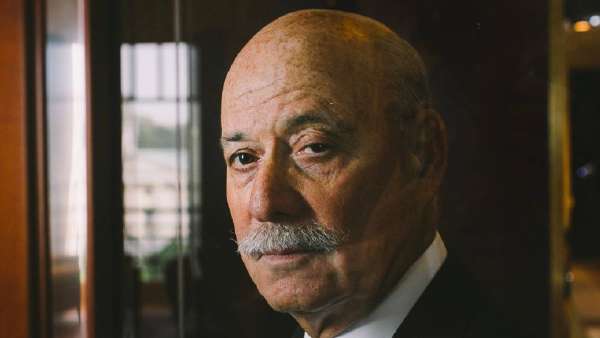Surveillance Capitalism
So, famously, industrial capitalism claimed nature. Innocent rivers, and meadows, and forests, and so forth, for the market dynamic to be reborn as real estate, as land that could be sold and purchased. Industrial capitalism claimed work for the market dynamic to be reborn as labor that could be sold and purchased. Now, here comes surveillance capitalism, following this pattern, but with a dark and startling twist. What surveillance capitalism claims is private, human experience. Private, human experience is claimed as a free source of raw material, fabricated into predictions of human behavior. And it turns out that there are a lot of businesses that really want to know what we will do now, soon, and later. You are not using social media, social media is using you. You are not searching Google, Google is searching you
Shoshana Zuboff
Sharing Economy
Let's say you go up on this internet of things infrastructure you have a lot of data coming through right. You can take the data you care about in your business and mine it with your own analytics create your own algorithms and apps so you can dramatically increase your aggregate efficiency at every conversion on your value chain. Your logistics, your production, your distribution, your recycling and dramatically plunge your carbon footprint. Because you're getting more out of less of the earth in a circular economy. And you plunge your fixed in marginal cost. Some of the marginal is already getting so low that it's forcing a metamorphose change of capitalism itself. This is coming from the inside. Let me explain: In economics we always teach our students that the optimum market is where you sell at marginal cost. You want to put out cheap products, cheap services, win over market share, bring some profits back to the investors. Correct that's the optimal market. It's just we didn't anticipate a digital revolution that could be so powerful in its efficiency taking us from 20% of aggregate efficiency to 60%. Those are our studies with our global team so the digital technology allows the marginal cost to really plunge and then your profit margins shrink. This is forcing a shift in the capitalist business model from the inside. Market capitalism is too slow for the digital revolution. Markets are transactional. You have a seller, a buyer. They come together, they alienate the good or service and then it's over. And in between you have marketing advertising costs, warehouses, you have to pay your employees, insurance etc. too slow with low marginal cost so: We're going to have to move from transactions in markets to flows in networks. We're going to move from ownership to access, from sellers and buyers to providers and users. We're going to move from productivity to regenerativity, from GDP to quality of life indicators from externality to circularity. And it's this digital interconnectivity that allows us to do every one of these things in real time. When the marginal costs become low the only way you keep your margins is to blockchain them or some other way and by 24/7 operation of traffic and provider user networks there's no downtime.
Jeremy Rifkin
Democracy is failing
When people say: "You have nothing to hide then you have nothing to fear" they really mean: It's fine the way it is we take care of everything. You give up your power and your freedom and we take care of you. Trust us. But a democracy is not about trust, it's only about co-determination. I think it is unrealistic to rely on altruism or self-sacrifice. People believe that meaningful engagement, trying to change things for the better or fighting injustice, that it costs them more than it benefits them. that has to change. The last ten years are perhaps the best example in modern history of how effective the politics of fear is. Fear is a successful political strategy to undermine our most precious values, our heritage, our history, our laws and rights. All a politician needs to say is that this is because of terrorism. That's enough. You just have to repeat it often enough like an incantation and rights will vanish into thin air and the law can be passed. what if we could change this mechanism. Imagine you are 20 years older, you have three kids in college, a mortgage on your house and a partner who has made a career. Then your refusal to do the right thing for the common good happens out of consideration or affection for your family because their life is so closely linked to you. There are even more of the older people in it who are already established. They are in many ways the establishment. I don't mean the elite but ordinary citizens. They have lost much of their democratic influence because they are afraid of losing something. We have to take away their fear. That's the point. Why is democracy so important to us? Why do we fight so hard for it? Because it's about the right to self-determination! Ordinary people can do unusual things and if they don't then there is something much bigger at stake.
Edward Snowden
Freedom of speech in the age of Social Media
Freedom of speech does not mean freedom of reach
Sacha Baron Cohen
